The event “Responsible investing through the lens of science” organized by Finsif focused on pondering how investors can actually influence society and the environment.
The event provided a fresh look at responsible investing research and practices, challenging participants to critically ponder the real significance of ESG.
Markku Kaustia, Professor of Finance at Aalto University, brought up in his presentation the paradoxes of responsible investing. He emphasized that while investors do have power, their scope of influence for instance when it comes to climate change is often exaggerated.
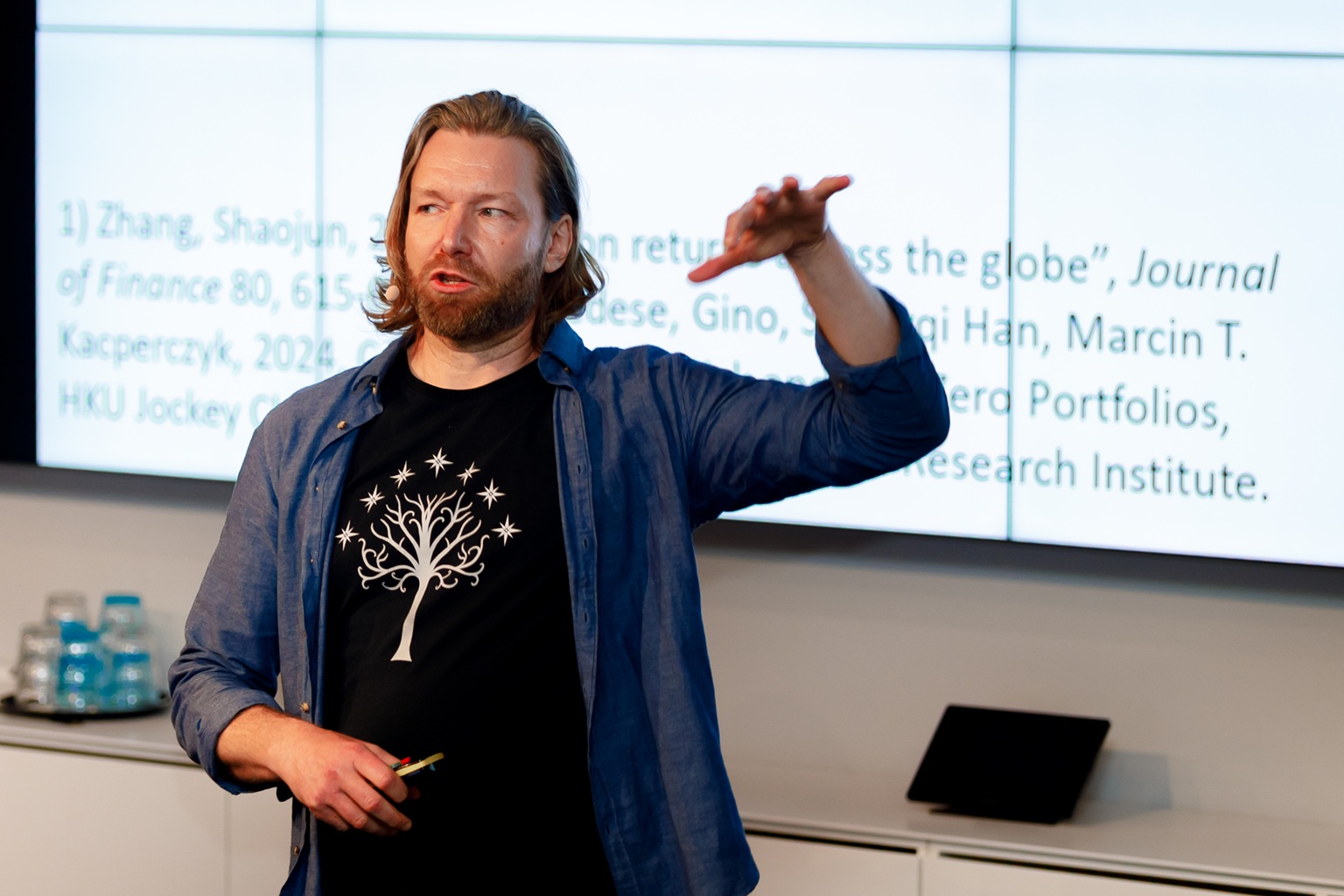
Kaustia presented four central ways in which investors do not save the world:
- By selling unethical investments – this does not make the companies change, it only transfers the ownership elsewhere.
- By blindly trusting ESG ratings – the ratings are often inconsistent and can be misleading.
- By thinking that the markets will take care of everything – responsibility requires active participation, not passive monitoring.
- By focusing only on listed equity investments – listed equities make up only a small portion of all the companies in the world, and it’s important to also influence privately owned companies.
Kaustia was also optimistic, however: investors can make a difference through active ownership, impact investing, and cooperation with other actors. He emphasized that it’s difficult, but also necessary to measure impact, so that investors can make informed decisions.
Companies’ promises vs. reality - and what should be done?
Researcher Anniina Korhonen from Aalto University examined companies’ emission reduction goals and how they were realized. Many companies set ambitious “net zero” goals, but concrete actions and reporting are often lacking.
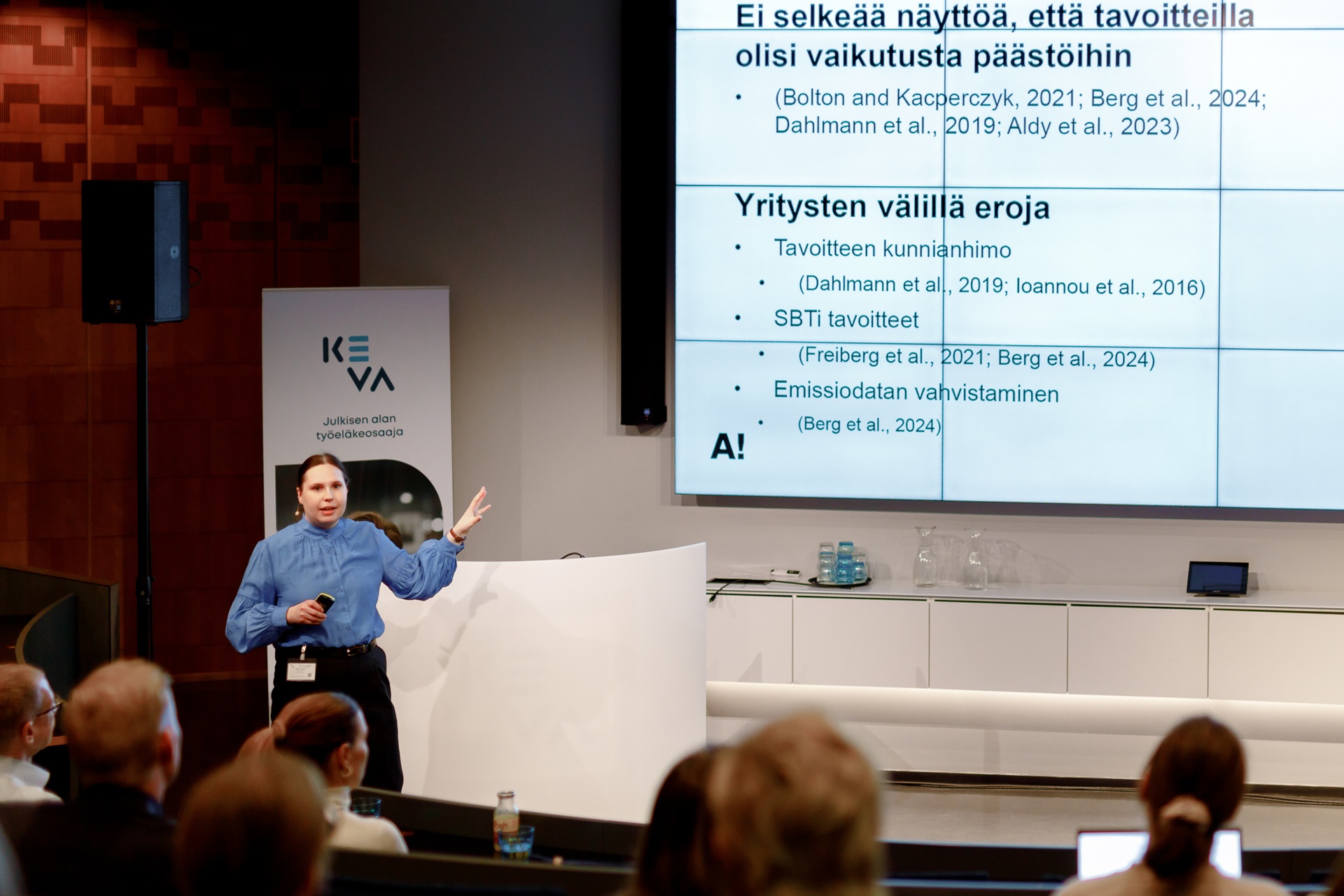
Korhonen indirectly presented several strategies for improvement. According to her, reporting transparency and comparability must be increased, so that investors can evaluate companies’ actual improvements. In addition, intermittent goals alongside long-term ones could help with monitoring progress in real time.
According to Korhonen, it’s crucial that investors play an active role: they need to demand better data and influence companies in a systematic way. Divesting does not help with companies’ emission reduction, because it does not lessen or remove the actual problem from the world, it only transfers it to another owner.
Measuring impact in practice
Professor Benjamin Maury from Hanken School of Economics spoke about the difference in measuring ESG and impact. He emphasized that ESG is often risk management, whereas impact refers to real change. According to Maury, investors should start measuring effects, and not just processes.
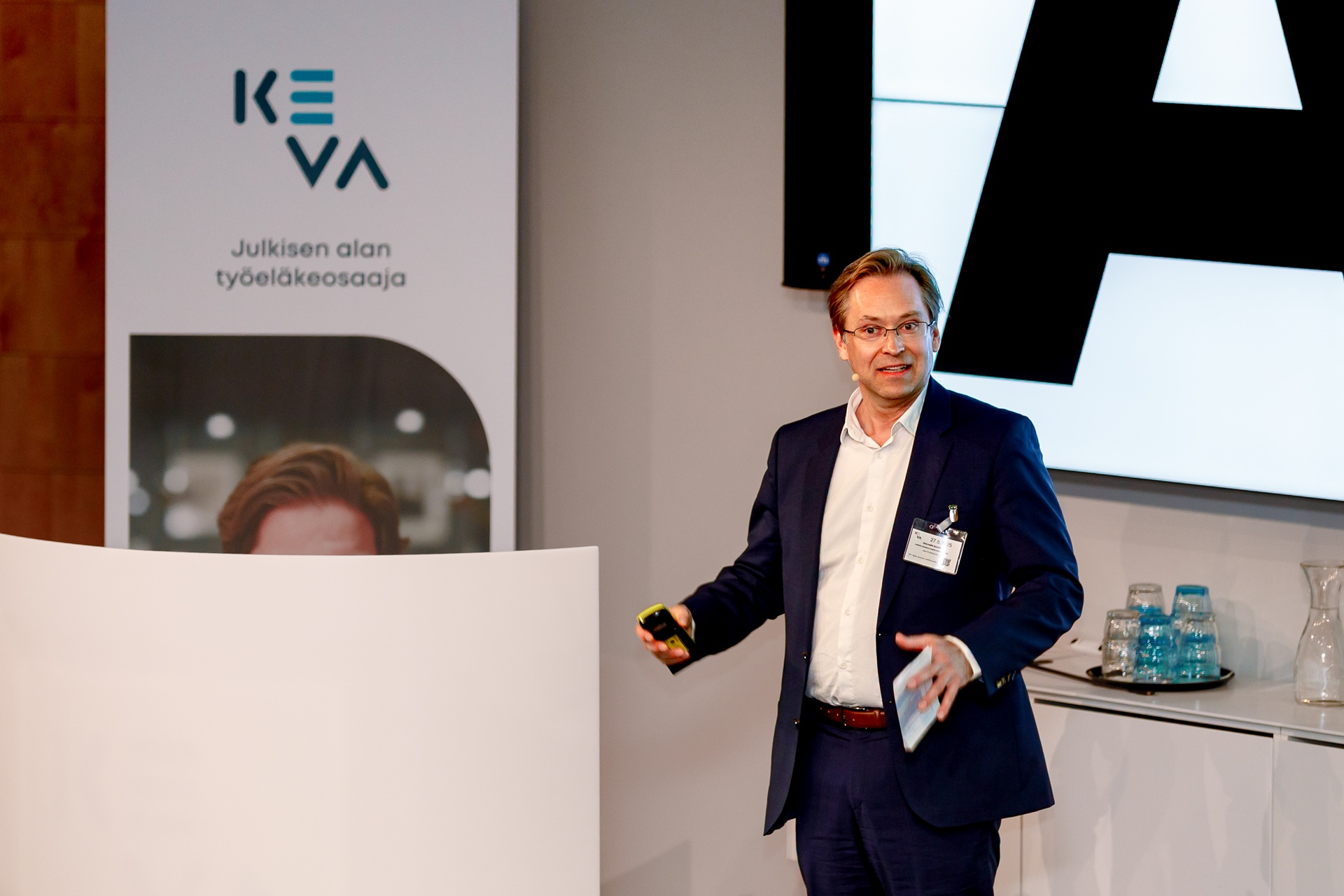
Maury underlined that evaluating impact requires a new way of thinking and measuring, that takes into account both direct and indirect effects on society and the environment. He also pointed out that measuring impact is not only a technological challenge, but also a strategic choice: what is measured, is what is managed. Therefore, investors must be aware of what signals they send through their metrics.
Rewarded thesis projects
Research by Finsif 2024 stipendiaries that brought up the complexity of responsibility was also presented at the event.
Jialin Ni examined the study she had conducted together with Clarissa Tuutti on how ownership structure affects ESG performance. According to her, concentrated ownership and inner circle participation can improve ESG ratings, but effects vary depending on the context.
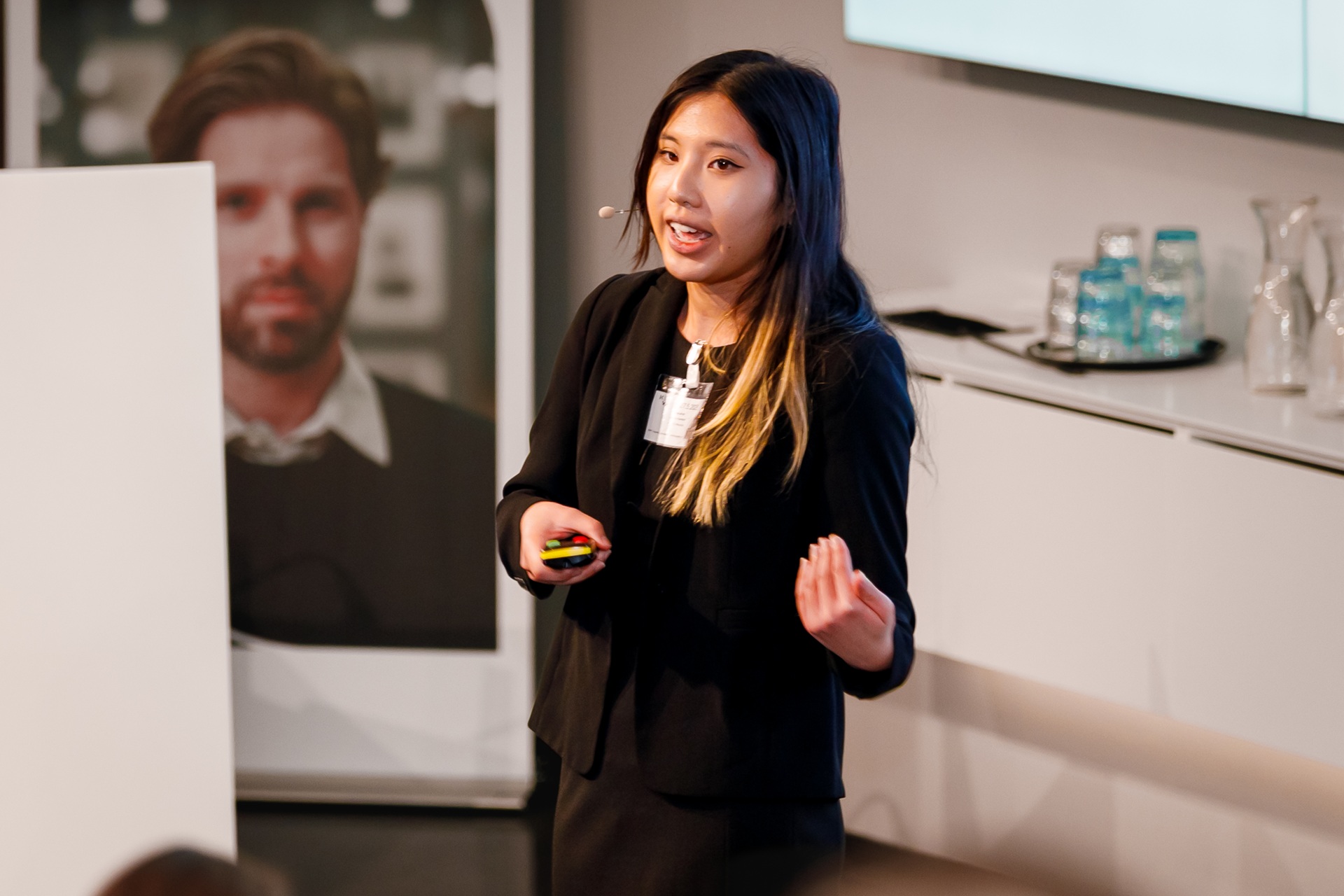
Wilson Tukiainen on the other hand dealt with sustainability-linked bonds and questioned whether they are authentic or tools for greenwashing. Some issuers do not commit to ambitious objectives, which weakens the instrument’s credibility.
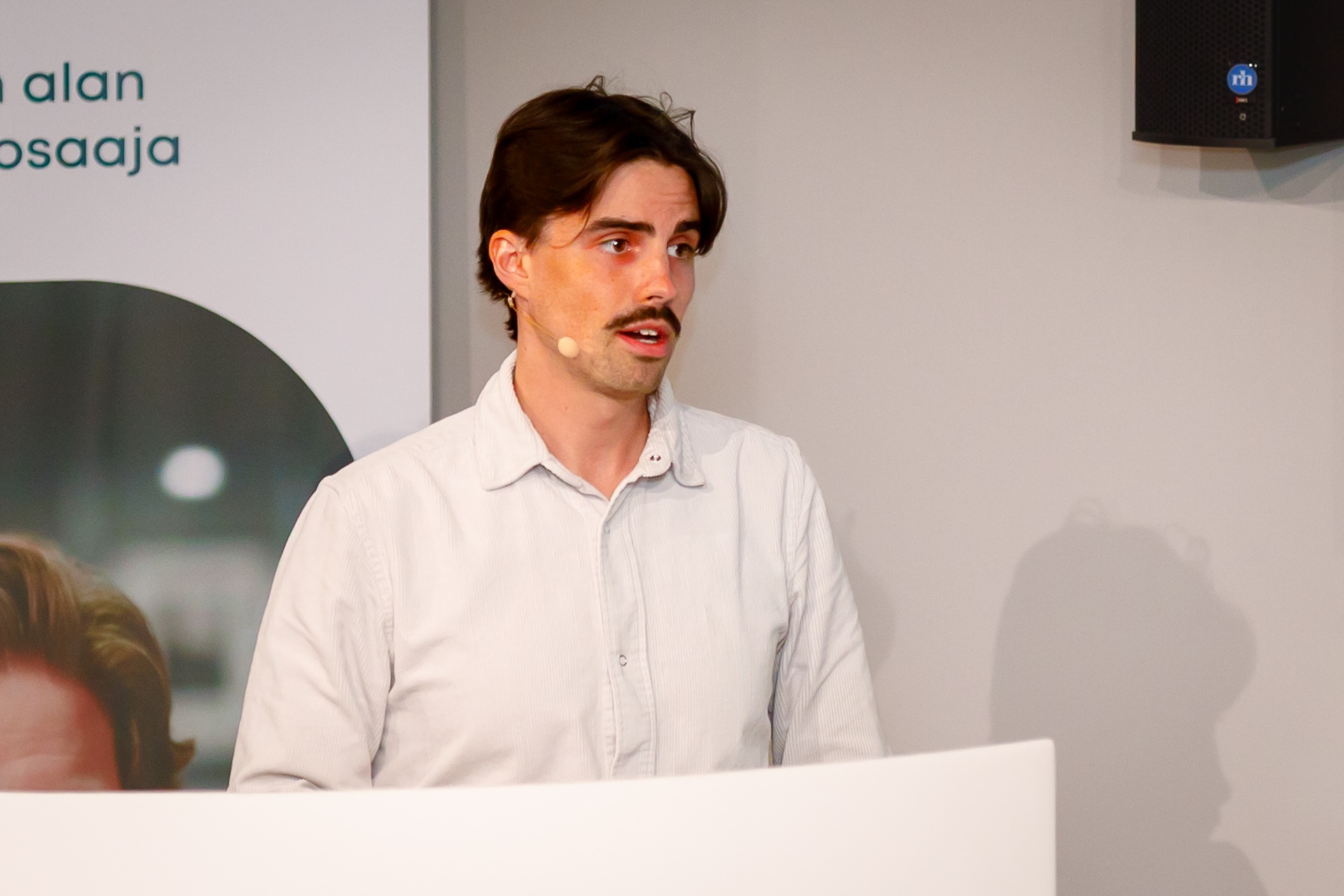
Science brings realism into responsibility
Finsif’s event offered an important reminder that responsible investing is not a simple solution to global problems. It requires critical thinking, researched information, and a willingness to tackle difficult issues. Investors can be part of the solution, but only if they are willing to look in the mirror.
